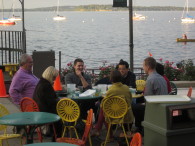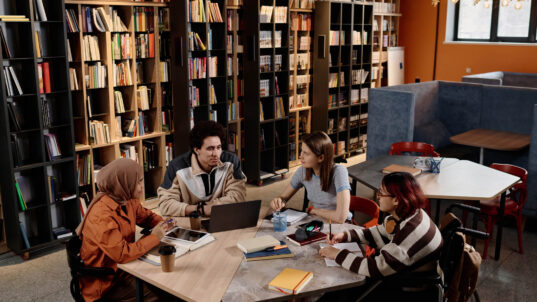It is often helpful in IF projects to start with an “agreement” with project panelists. The following is the framework I have been using:
 Project Ground Rules—The Interactivity Foundation (IF) has a discussion process of exploration and development that the project manager(s) follows in order to develop contrasting policy possibilities for discussion guides on selected topics of interest. This process is outlined in a separate handout and has worked well in organizing discussion projects and bringing them to a productive conclusion. Our discussion sessions, however, are not driven by technical processes or complicated guidelines. They may be different than many discussion ground rules that you have experienced in the past. They are meant to produce a discussion that is wide-ranging, supportive of new perspectives, and, hopefully, enjoyable for participants.
Project Ground Rules—The Interactivity Foundation (IF) has a discussion process of exploration and development that the project manager(s) follows in order to develop contrasting policy possibilities for discussion guides on selected topics of interest. This process is outlined in a separate handout and has worked well in organizing discussion projects and bringing them to a productive conclusion. Our discussion sessions, however, are not driven by technical processes or complicated guidelines. They may be different than many discussion ground rules that you have experienced in the past. They are meant to produce a discussion that is wide-ranging, supportive of new perspectives, and, hopefully, enjoyable for participants.
· PLAY NICE—almost everything thing we will do requires a cordial and respectful tone that encourages all participants to contribute to the exploration and development of our “possibilities”. Many of the ground rules below are meant to reinforce this simple attitude toward civil conversation.
· FORGET ABOUT CONSENSUS—if this project produces only those policy approaches that participants all agreed on, then it has failed to produce a tool useful for citizen discussion.
· BE A HELPER, NOT A DEBATER—there are no winners or losers in this discussion. Constructive participation in the exploration and development of possibilities often requires flexibility in attitudes, an ability to see things from different perspectives, and a willingness to help other participants develop concepts you may not agree with.
· YOU DRIVE EXPLORATION AND DEVELOPMENT—participants set the parameters of the topic at this stage. The project manager(s) have a facilitative role to keep discussions moving, but is there primarily to “harvest” your ideas and organize them, not to determine what should or should not be discussed.
· READ THE PRIMARY PROJECT MATERIALS—the project manager(s) usually provides a brief summary document of what should be considered for an upcoming meeting. It helps keep us on track if you familiarize yourself with that document. That does not prevent “backtracking” if you feel we have missed something at an earlier stage. It also will not prevent the project manager(s) from sending you emails, links to websites, connections to wiki sites or google docs.
· OTHER?—we may find our conversations require additional structure as we get to know each other and the needs of our topic. Proposals entertained gladly.



